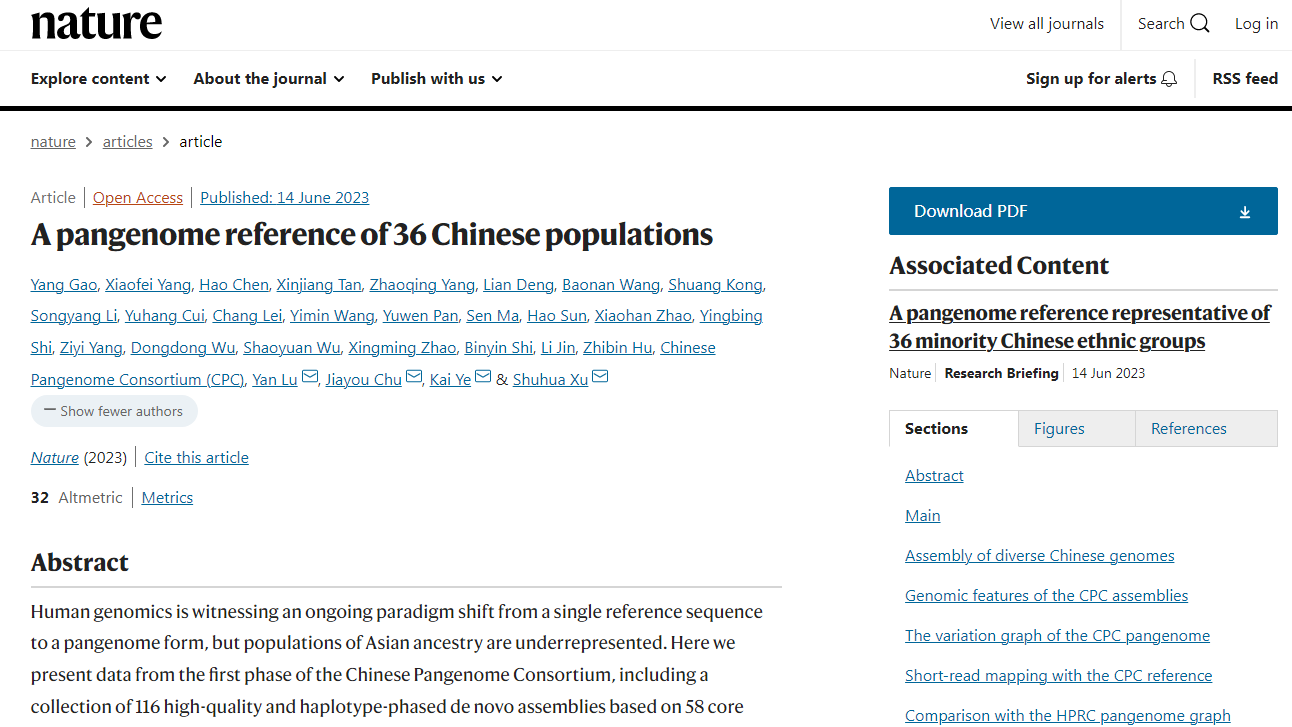
Chinese scientists have drawn the first human pangenome of 36 Chinese populations, a significant step toward enriching the study of human genomics of Asian ancestry.
Over 20 Chinese scientific research institutes, including Fudan University, Xi'an Jiaotong University and the Chinese Academy of Medical Sciences, collaborated on the study published in the global academic journal Nature on Wednesday.
Scientists did in-depth sequencing of 58 individual samples representing 36 Chinese ethnic groups using the latest third-generation high-fidelity genome sequencing technology. A pangenome is a set of genomes, a complete set of genes, from many individuals that are compared to see where the sequences are identical or different. Mapping the human pangenome can help scientists identify genetic differences, which has the potential to contribute to more personalized and precise medical development.
The research discovered the reference sequence of approximately 190 million base pairs missing from the human universal reference genome. About 5.9 million small variants and over 34,000 structural variations have been newly identified.

A screenshot of the published study on Nature website. /Nature
A screenshot of the published study on Nature website. /Nature
Zhao Guoping, a member of the Chinese Academy of Sciences, said the Asian group is one of the crucial parts of the human species, but genomic study based on the group is scarce.
"China provides abundant human genomic resources for studies on genomic diversity and human evolution."
It is the first time Chinese scientists conducted pangenome research on Chinese populations.
Those in existence commonly use human reference genomes constructed mainly based on white European samples, lacking the genomic diversity of other populations, such as Chinese.
The latest published research on human reference pangenomes collected 47 samples from around the globe, but only three samples are Chinese.